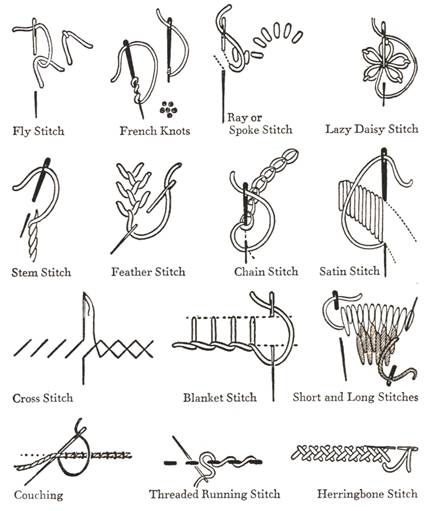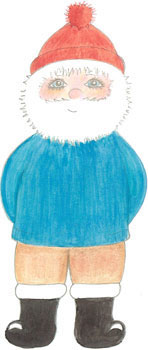
Salty Sam’s Fun Blog for Children
Number 467
Blood
Hello Everyone Bob fell over in Auntie Alice’s garden the other day.
Bob fell over in Auntie Alice’s garden the other day.
He scratched his arm and it was bleeding.
Auntie Alice washed his wound and put his shirt into a bucket of cold water to soak out the stain.
She said she needed to wash it in cold water not hot, because blood was protein and if you heated it, the stain would not go away like it would in cold water.
Have you noticed how you will always bleed if you scrape of cut yourself deeply enough?
This is because blood is in almost every part of your body. lt isn’t in your nails and hair.
Blood is a very interesting thing to study. lt is very important to you.
There are different kinds of cells in blood. You can see them under a microscope.
Blood cells are made in bone marrow, which is the soft tissue inside your bones.
Red blood cells carry oxygen from the air drawn into the lungs and take it to every living cell in the body.
We have 20 trillion red blood cells and make 17 million new ones every second.
When the blood is charged with oxygen it becomes a brighter red colour.
But these red blood cells can only contain a certain amount of oxygen.
When you exercise your heart rate becomes faster and your breathing becomes faster too until you begin to pant.
This happens because your body wants to take more oxygen to your muscles to help them do the extra work that they need to do when they are moving during exercise.
At altitude your body produces a higher number of red blood cells. This helps muscles work better and so this enhances sporting performance. This is why athletes like to train at levels high above sea level.
Different foods have different effects on your blood and it carries the nutrients from your food around your body. Your really are constructed of the food you eat.
The blood is delivered to all your cells by a network of arteries and capillaries and taken back to the heart and lungs by veins. The blood takes carbon dioxide and other waste matter away from cells to.
The exchange of carbon dioxide for oxygen is called respiration. This is the process of inhalation and exhalation causing an exchange of gasses between atmosphere (the air that you are in) and cells.
These vessels add up to 60,000 miles of tubing in an adult’s body – this distance amounts to enough to circle the world twice.
There are also blood cells that are called white blood cells. We have about 40 billion of these.
These are specially designed to attack foreign bodies not wanted in the body like viruses, bacteria and fungus.
Any infection or injury will attract a larger volume of blood to an area of the body in trouble. With more blood come more white blood cells to start working on any unwanted invasion.
ln the past, people used to think that bleeding helped to fight disease and calm the nerves. They thought that too much blood rushing to a site of infection was bad and needed to be drained away.
The opposite is true.
At first, blood letting, as it was called, was done by cutting blood vessels then by employing leeches to keep sucking out more blood. These little creatures were scooped from rivers and lakes and attached to the skin. Each one could suck out 14g of blood.
(Nowadays, medical leeches are used to suck blood out of surgically reattached parts of the body or skin grafts where blood is pooling – until the blood vessels are healed enough to cope with taking it out themselves and blood starts circulating properly again.)
There are other cells in the blood called platelets. These are very special cells that cause your blood to clot if you have a small cut or nose bleed caused by a broken blood vessel – otherwise with your heart pumping your blood around your body fast enough to get it around in only one minute your blood would all spurt out and drain away.
(You can feel your pulse easily by putting your fingers beside your throat.)
Without enough blood inside you, you could not survive.
The platelets are the front line of defence in the immune system set up to defend the body against anything that attacks it – like when Emily accidentally stabs herself with her sewing needle.
Platelets spring into action the second they are needed to block any drainage. They gather at the site of injury and stick together. When they are called to take action, they grow sticky, finger-like protrusions around themselves which enable them to stick together and form a web-like structure.
What is more they signal to other platelets to come and join in the task of forming the clotting they are forming in the wound.
lsn’t nature clever?
Of course, this will work for a small wound but larger ones will need medical attention. Holding a pad of clean cloth on a wound and applying pressure will help stop bleeding.
lf you have a bad nose bleed don’t panic. A nose bleed lasting up to even 30 minutes is nothing to get upset about.
You can survive some blood loss. You need to lose a lot of blood before you need a transfusion.
Doctors have been carrying out transfusions for a very long time. The first that we know about was between a lamb and a man.
The man survived, but many attempts at transfusions after that often did not go well.
What doctors of the time did not know was that humans have different blood types and if you give a patient the wrong type of blood, they may die.
lt wasn’t until the early 20th century that scientists discovered the different blood types and now nearly one million litres of donated blood are given to those in need.
You have to be an adult to donate blood. You can ask for an anaesthetic before the tube is put in your arm.
You don’t get money for giving it; you just give out of the goodness of your heart.
lf you like my blog, please support it by telling all your friends and followers about it.
Thank you!
And see you again next Fun Friday!
Love and kisses
Salty Sam

www.christina-sinclair.com


Bill and Bob’s Joke of the Week![]()
![]()
Bill: A baby vampire says to his mother, “Why do we have to have the same soup every day?”
Bob: And the mother answers…
Bill: “Be quiet and eat your dinner before it clots.”

Salty Sam © Christina Sinclair 2015
Unauthorized use and/or duplication of material from this blog without express and written permission from this blog’s author and owner is strictly prohibited.
Links may be used to www.christina-sinclair.com

Picture Gallery
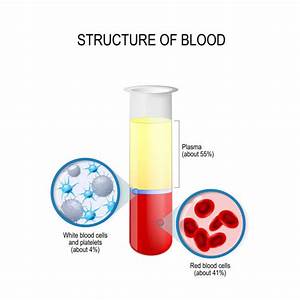
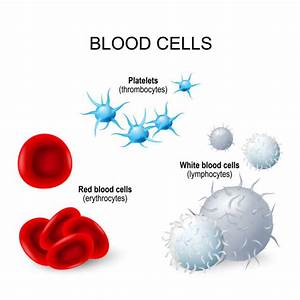
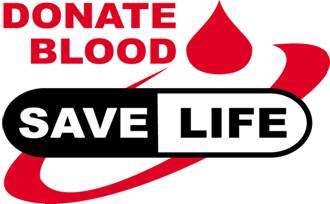


 THE SALTY SAM NEWS DESK
THE SALTY SAM NEWS DESK

This week. there was a blood drive in Rocky Bay.
Lots of beds were set up in the village hall and any Rocky Bay resident who would like to donate some of their blood was invited to attend.
If there is no place like a church hall that can be used in a district, a lorry can be sent out with all the equipment inside ready to use.
These blood vans have beds inside and lots of nurses who are trained to take blood.
Some of the vans have cute, cuddly, toy vampire bats hanging from the ceiling as a joke.
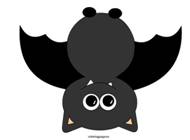
Before anyone gives some blood to be taken away to be used for patients it has to be tested.
Someone has to have enough iron in their blood to give an amount away; it is for their own good.
All blood has to be sorted into types.
There are four main blood groups: A, B, AB and O.
The kind of blood you have is determined by the genes you inherit from your parents.
Then each blood group can be RhD positive or RhD negative. This is said as Rhesus positive and Rhesus negative.
So there are eight main blood groups in total.
Blood type O is the most common; about 48% of the population in Britain has this blood type.
Being given the wrong blood can be life threatening to some people.
Groups A and B cannot give to each other.
About 85% of the population is RhD positive.
Group AB is the rarest and so AB- is the rarest main blood group.
Group O RhD negative blood can be given to anyone. This is the blood type given to someone who needs it in a hurry after an accident when their blood type is not known. Blood O- does not contain anything in it that will attack anything in another kind of blood.
Anyone can give blood if they are over 17 years old, 50kg or more and are fit and healthy. The upper limit is 66 but you can give when you are older if you are a regular donor.
You cannot give blood if you have alcohol or medicines still swimming around in it at the time you donate.
You will be allocated a nurse who will look after you.
After you have donated a small bag full, you are encouraged to lie down for about 10 minutes to half an hour so that you don’t walk off and then feel faint and giddy.
The first time you give, it is a good idea to lie down for anything up to an hour. From then on you are more used to giving blood and it won’t take so long to get on your feet. If you feel a bit giddy the first time you give, this shouldn’t put you off giving again.
Walking upstairs afterwards will probably make you feel out of breath.
You must take in lots of liquids to help make up your loss quickly in the hours that follow. There will be water for you to drink where you give blood.
There will be free snacks of crisps and biscuits too.
At out village hall, the vicar arranged for tea and coffee to be served.
People can need blood if they are ill, have an operation or have an accident.
Only a tiny percentage of the population give blood; and at times the National Health Service can run short.

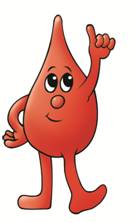

*********************
TO ADVERTISE ON THIS BLOG
PLEASE CONTACT:
christina.sinclair.ads@aol.co.uk
*********************

 Quick Quiz
Quick Quiz
What do these idioms mean?
- to learn things by heart
- to set one’s heart on
- to take heart
- Have a heart!
- a heart to heart
- to have someone’s best interests at heart
- to lose heart
- to known one’s heart of hearts
- someone’s heart is in the right place
- to have a change of heart
- when your heart is not in it
- something close to your heart
- after my own heart
- to have a heart of gold
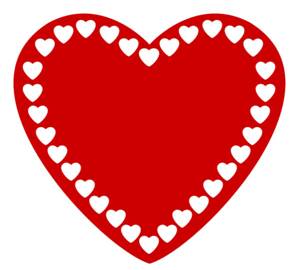



lt’s the Weekend!

HOW TO MAKE A FUNNY MOUSE FlNGER PUPPET
This funny, little mouse will fit on the end of your finger and scurry about all over the place.
MOUSE (KNIT ONE)
Using 4mm knitting needles and dark grey dk yarn cast on 5 stitches
Knit 2 rows stocking stitch
Increase 1 stitch at the beginning of the next 6 rows of stocking stitch
Knit 10 rows stocking stitch
Knit 2 rows garter stitch
Cast off
EARS (KNIT TWO)
Using 4mm knitting needles and pink dk yarn cast on 4 stitches
Knit 2 rows of garter stitch
Decrease 1 stitch at the beginning of the next 3 rows of garter stitch
Cast off and leave ends long enough to sew the ears onto the body
TO MAKE UP
- Using over-sew stitching and with right sides together sew side seams
- Sew eyes and ears into place (the eyes are French knots made with the yarn wrapped around the needle three times)
- Sew a bead onto the nose
- You can add a tail if you would like to
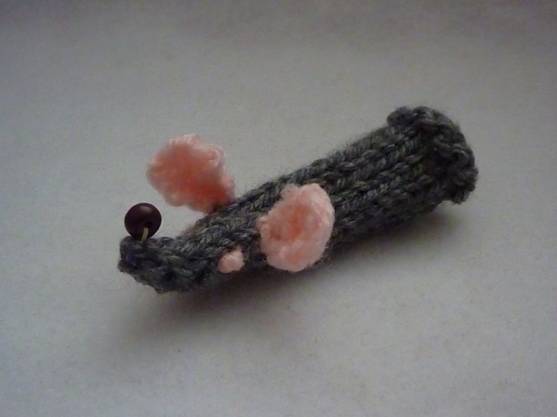
Please note that the material on this blog is for personal use and for use in classrooms only.
It is a copyright infringement and, therefore, illegal under international law to sell items made with these patterns.
Use of the toys and projects is at your own risk.
©Christina Sinclair Designs 2015


Quick Quiz Answers
- to learn things by heart – to memorize
- to set one’s heart on – to be very keen on having something
- to take heart – to find energy to take on a project
- Have a heart! – please be kind and helpful in this situation
- a heart to heart – to have a serious talk with someone
- to have someone’s best interests at heart – to believe you are genuinely helping someone
- to lose heart – to start to give up/not have enthusiasm for a project
- to known in one’s heart of hearts – to have deep intuitive knowing
- someone’s heart is in the right place – they mean well
- to have a change of heart – to change what you believe
- when your heart is not in it – when you don’t genuinely want to do something
- something close to your heart – something you really care about
- after my own heart – l feel the same
- to have a heart of gold – to be a good and kind person


Embroidery Stitches
